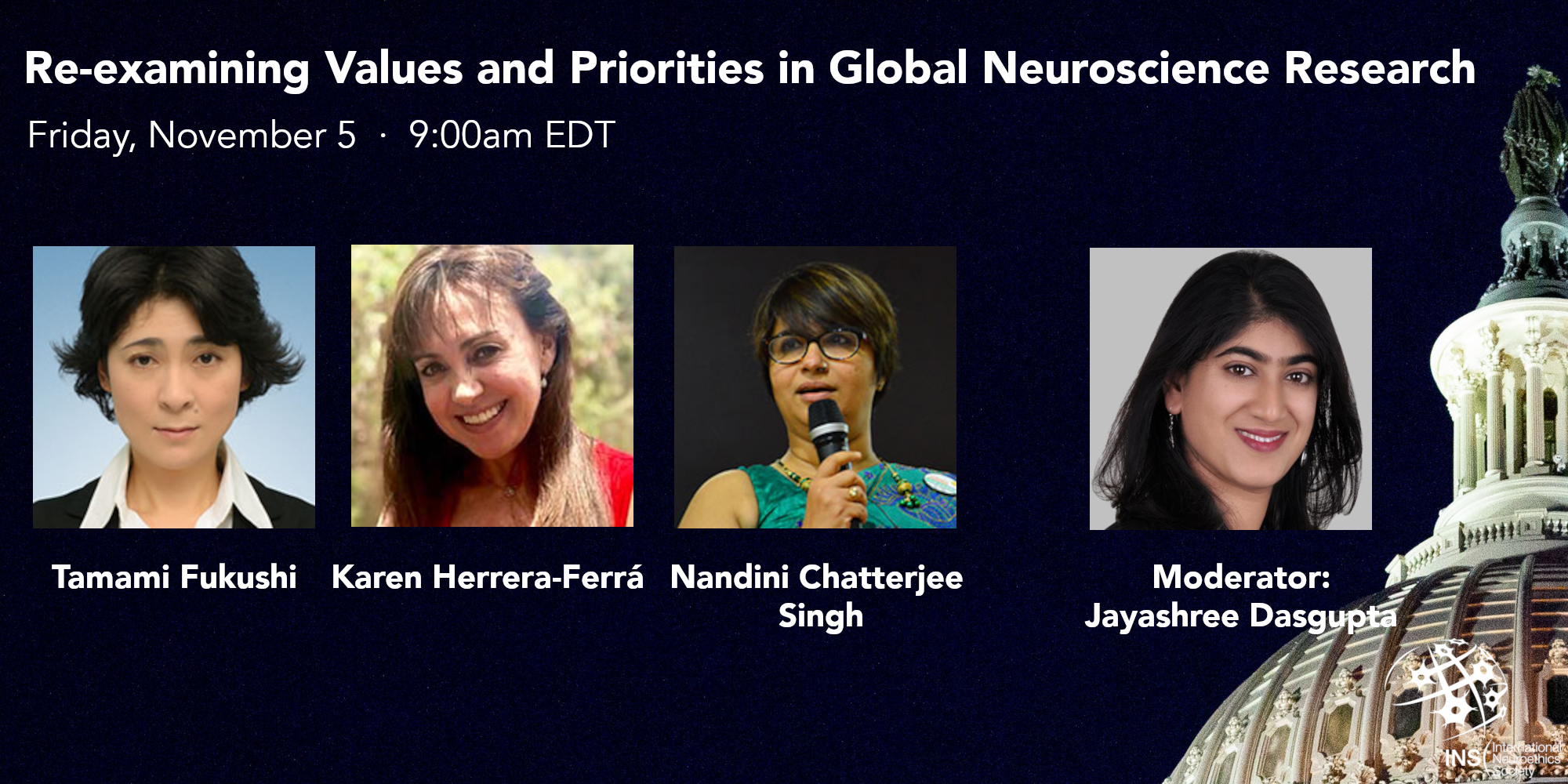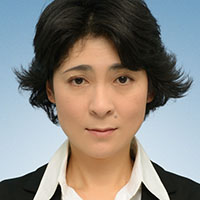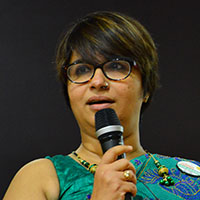Re-examining Values and Priorities in Global Neuroscience ResearchFriday, November 5, 2021 This session will feature a discussion of the specific priorities for development and use of neuroscience and neurotechnologies, including the type of opportunities available to develop and fund neuroscience and neurotechnology, as well as the need and challenges to engage diverse participants and communities in research globally. The discussion will also examine how current funding mechanisms might exacerbate or mitigate social injustice and inequities. The session includes panelists from countries with a diverse research and translational neuroscientific maturity. Speakers
Agenda
 RecordingResources
Speakers Tamami FukushiJapan Agency for Medical Research and Development Tamami Fukushi received a PhD in Behavioral Science from Hokkaido University. After postdoctoral experience in neural control of movement field at the University of Minnesota, she returned to Japan in 2005 to start career in neuroethics. Her current interest of neuroethics is ELSI of advanced technology of neuroscience in the context of science policy and regulatory science. This work was acknowledged by Dr. Junichi Ushiba, Keio University, and supported by a JST, Moonshot R&D Grant (Number JPMJMS2012).  Karen Herrera FerráAsociación Mexicana de Neuroética Karen Herrera-Ferrá, MD, PhD, is founder and president of the Asociación Mexicana de Neuroética (Mexican Association of Neuroethics). Her research analyzes the biocultural considerations and ethical, legal, and social issues and concerns in the use of neuroscience and neurotechnology in developed, developing, and non-developed countries.  Nandini Chatterjee SinghUNESCO Nandini Chatterjee Singh is a cognitive neuroscientist and currently Senior Project Office at UNESCO MGIEP (Mahatma Gandhi Institute of Education for Peace and Sustainable Development), in New Delhi, India. Nandini works on learning, in the context of literacy, emotion and music. Nandini received her PhD in physics from the University of Pune in India. Her post-doctoral research focused on auditory learning mechanisms in songbirds at the University of California, Berkeley. She established the first cognitive and neuroimaging laboratory in India at the National Brain Research Centre (NBRC) in India. Her research is focused on language, literacy, and music. Using behavioral and functional neuroimaging experiments, her research aims to understand neurodiversity especially children with autism and dyslexia. Her work in biliteracy led to the development of DALI (Dyslexia Assessment for Languages of India), the first tool standardized tool to screen and assess dyslexia in multiple Indian languages. Her research laboratory at NBRC conducts research on how Indian ragas elicit distinct emotions. Since 2017, she has been leading the development of a new framework for social and emotional learning at UNESCO MGIEP. Entitled, EMC2, this framework builds competencies in Empathy, Mindfulness, Compassion and Critical Inquiry, through a new digital interactive curriculum using global issues and is designed for adolescent children.  ModeratorJayashree DasguptaNeuroGeneE Project / Samvedna Senior Care Jayashree Dasgupta is a clinical psychologist and received her PhD from the National Institute of Mental Health and Neurosciences, India. She is the Co-Founder and Project Director of Samvedna Senior Care and Co-PI of a project under NeuroGenE (Global Initiative in Neuropsychiatric GenEthics) investigating ethical, legal and social issues of cognitive enhancement in India. She is a member of the International Neuroethics Society Diversity & Inclusion Task Force and has previously worked to develop gamified tools for neurodevelopmental screening in community settings at Sangath and Public Health Foundation of India. |
